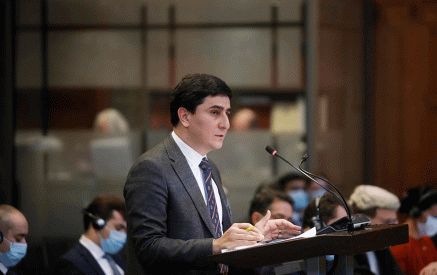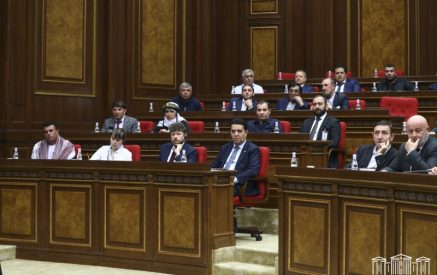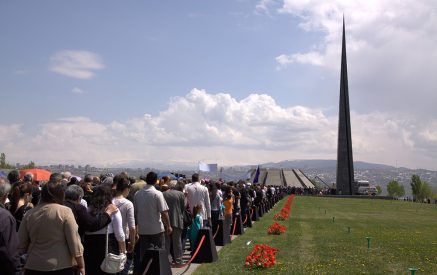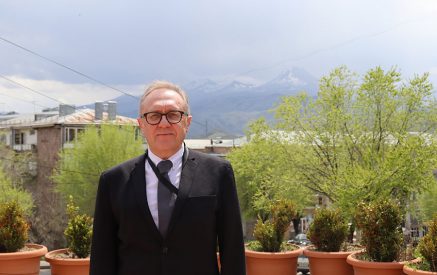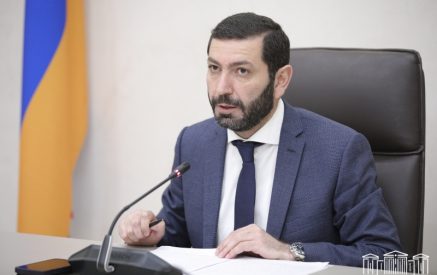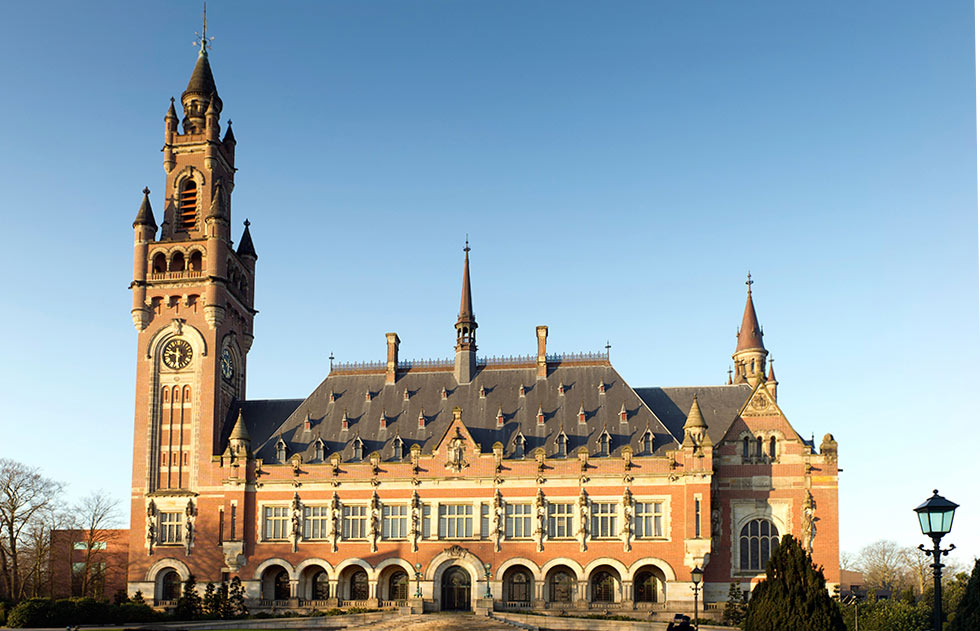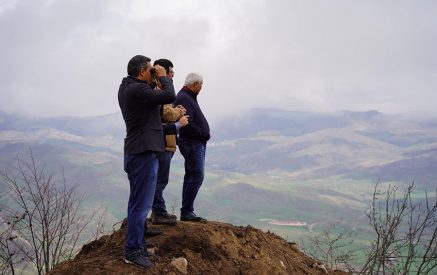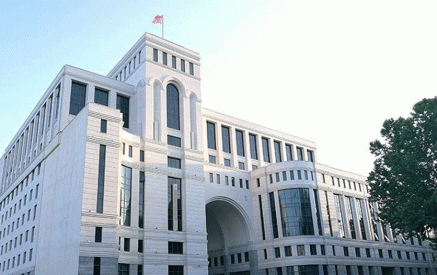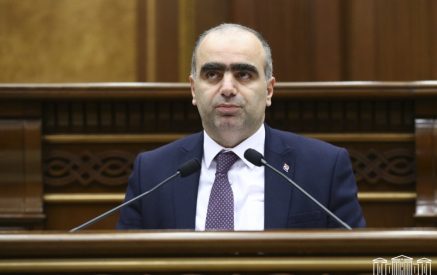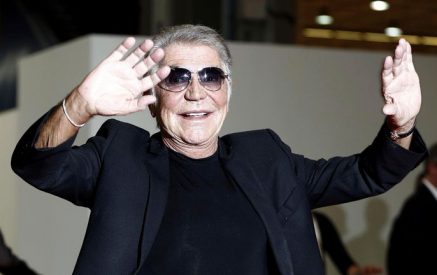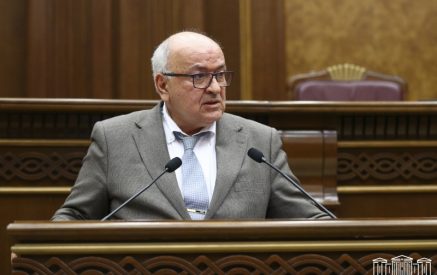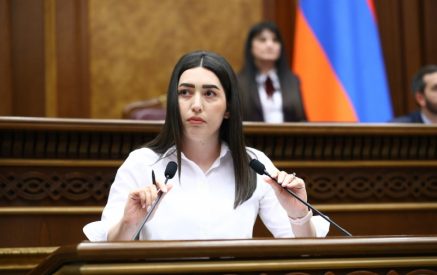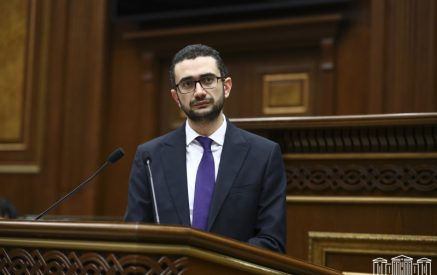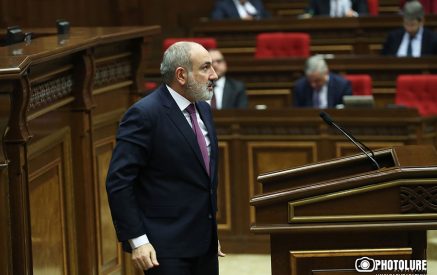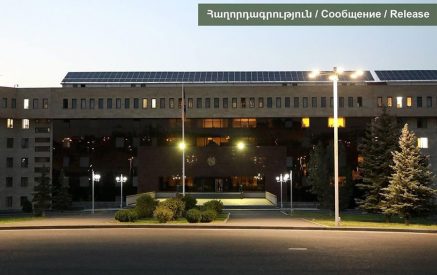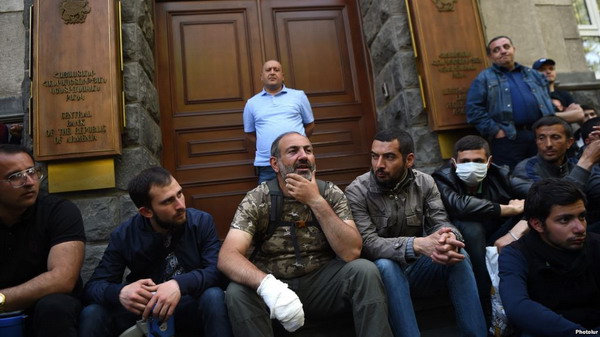RFE/RL. When Armenian lawmaker Nikol Pashinian received a police notice warning that the protests he was leading were unlawful, few were surprised when he ripped it up on the spot without even bothering to read it.
Pashinian has a history of defiance. The outspoken government critic and newspaper editor was sentenced to seven years in prison after being found guilty of helping organize mass protests over Serzh Sarkisian’s 2008 presidential election that left 10 dead and more than 200 injured.
He ended up only serving half that sentence — which he and fellow journalists said was politically motivated and followed a rigged vote — due to a general amnesty. But Pashinian boasted that he and other oppositionists were continuing to fight for regime change from behind bars.
When the “Electric Yerevan” protests erupted in 2015 following a steep hike in energy prices, Pashinian — who was by then an opposition lawmaker — said police had no right to disperse a peaceful demonstration.
And in 2016, Pashinian stepped in to mediate between police and a little-known armed opposition group that was holding hostages after carrying out a deadly raid on a police station.
Today, the 43-year-old Pashninian’s track record of civil disobedience has helped attract thousands to gather in Yerevan to protest parliament’s move to cement two-term former President Sarkisian’s transition to the prime minister’s post.
“Pashinian has been very active in civic initiatives and he has managed to encourage people to rise up,” says Stepan Grigorian, a political analyst and head of the Globalization and Regional Studies Analytical Center.
“Peaceful but very bold steps have been made, and that is why people believe him and have gone out into the streets,” he adds.
History Of Defiance
A former editor in chief of and owner of Haikakan Zhamanak (Armenian Times), one of the most popular Armenian newspapers, Pashinian was elected to parliament in 2012 as a representative of the opposition Armenian National Congress party.
In 2017, Pashinian set up his own party and was elected to parliament as head of the Yelk election bloc. One of its main platforms was criticizing constitutional changes approved following a December 2015 referendum changing Armenia’s form of government to a parliamentary system instead of a quasi-presidential system.
As a result, presidential veto powers were stripped from the president and the post was downgraded to a figurehead position elected by parliament every seven years rather than by a direct popular vote.
Sarkisian was first elected in 2008 in the South Caucasus country of about 3 million people and served two terms, stepping down when the new president, Armen Sarkisian — no relation to Serzh — was inaugurated on April 9.
He had promised in 2014 that he would “not aspire” to be prime minister if Armenia switched from a presidential to a parliamentary system as a result of the referendum, and Pashinian and other opposition leaders now accuse him of breaking that pledge.
“Pashinian has used his parliamentary mandate for the interests of citizens,” says Artur Sakunts, head of the Helsinki Citizens’ Assembly Vanadzor Office.
“Without making any claims for leadership, he has boosted civil protest. Through civil disobedience he has shown that Armenian citizens aren’t indifferent to their state, aren’t indifferent to the fact that Serzh Sarkisian is getting ready to occupy the post of prime minister, which will consolidate the culture of authoritarian government.”
Many in the crowd of protesters said Pashinian’s call for the demonstrations to remain nonviolent helped convince them to join in.
Ironically, Pashinian himself was taken to a hospital with cuts and an eye injury after police moved in to stop the opposition lawmaker and others from entering parliament on April 16.
But hours later he returned to the demonstration, bolstering his reputation among the thousands rallying against Sarkisian outside the legislature.
“As of a political figure, he has always stood out for his disobedient views and sincere criticism of the authorities, for which I have always liked him,” 32-year-old Armen Ohanian told RFE/RL as he protested to keep “this vicious system from being reproduced.”
Photo – RFE/RL


